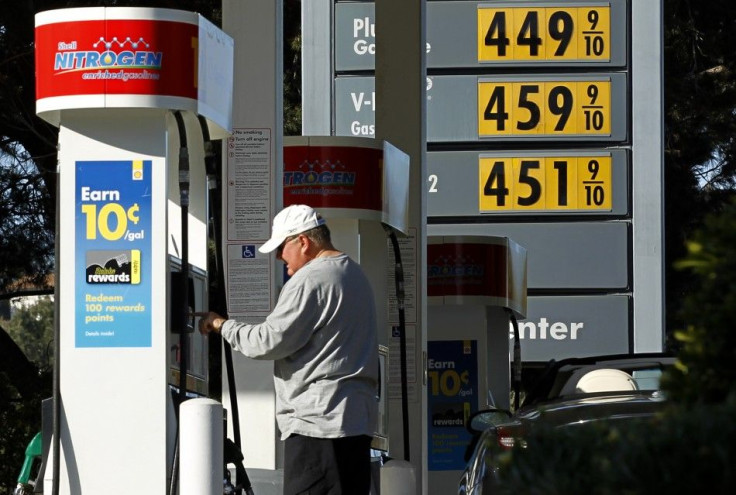Fourth of July: Good News, Bad News on U.S. Gas Prices

Heading in to the holiday weekend, there's good news and bad news for U.S. motorists -- particularly for those planning a 4th of July holiday weekend travel.
First the good news: retail gasoline prices are down about 9 cents in the past week, and about 21 cents in the past month, to about $3.56 per gallon nationally for regular unleaded, according to data compiled by gasbuddy.com.
Now the bad news: gas prices are still up a whopping 78 cents per gallon - or up about 28 percent - compared to the same period a year ago, when regular unleaded sold for about $2.78 per gallon.
What's caused this year's surge in gasoline prices? Energy analysts say most of the rise stems from the roughly $20 surge in crude oil prices, to about $95 per barrel, largely due to the civil war in Libya, which removed more roughly 1 million barrels per day from the daily global oil supply. Oil traded Friday down $1.07 to $94.33 per barrel.
Further, energy analysts are quick to point out that there's no shortage of oil in the world - inventories in the U.S., for example, remain high - but it's institutional investor concern that the unrest in Libya will worsen, or that other oil producing nations may encounter unrest, that's pushed oil higher.
Some of the $20 oil price rise also stems from rules that enable investors to place speculative bets on rising oil prices. It's a high-risk strategy that pays handsome rewards if investors are correct, but one that saddles them with major losses, if they are wrong and aren't hedged to lessen the failed trade. Oil's price has also been elevated by rising demand for oil and petroleum products in fast-growing emerging market countries, particularly China.
The best way to reduce your gasoline bill, assuming you haven't traded in your car or SUV for a more-efficient model? Don't drive at an excessive speed on the highway (most vehicles see their miles per gallon decline above 60 miles per hour), do not carry excessive weight/items in your vehicle, and never fill-up in a resort or large city, where gasoline prices tend to be higher.
© Copyright IBTimes 2024. All rights reserved.











